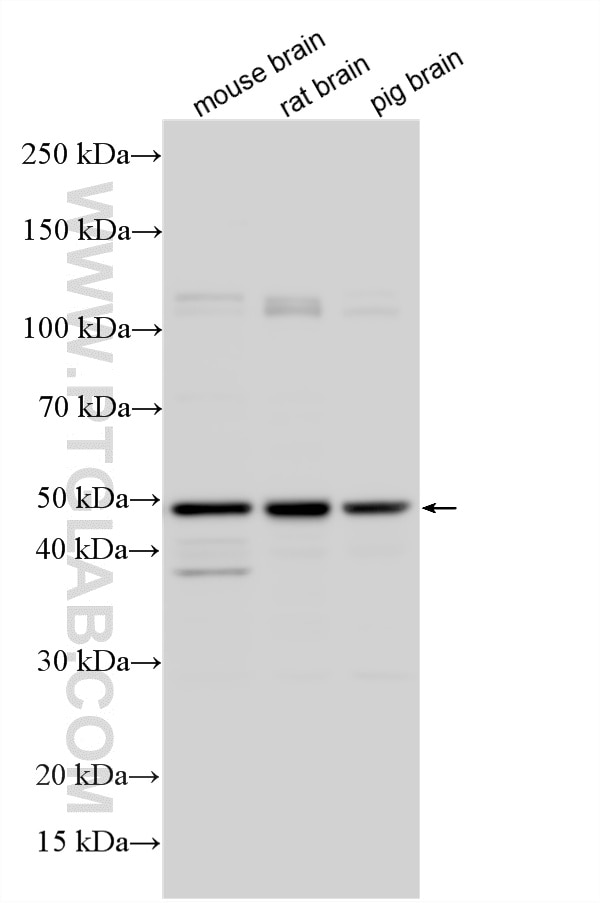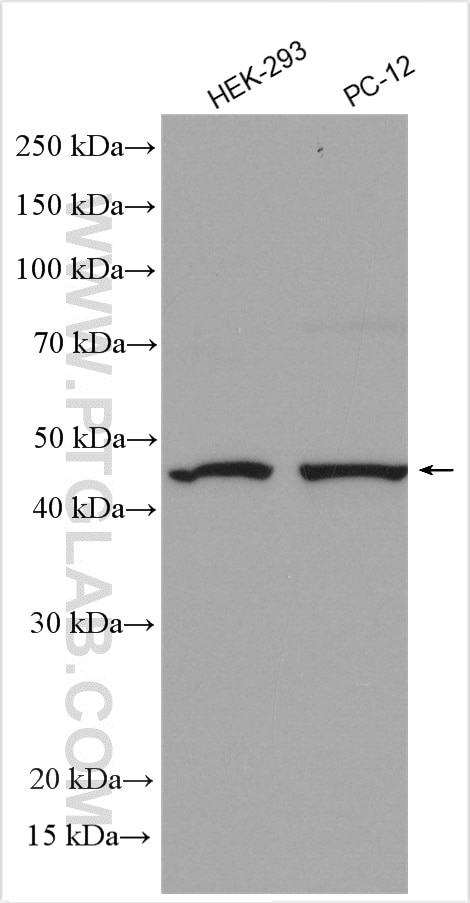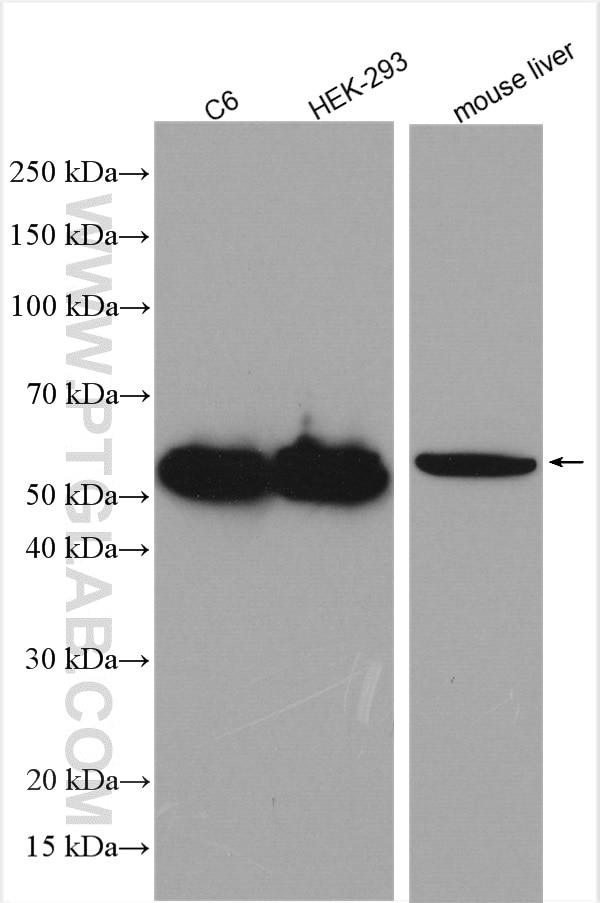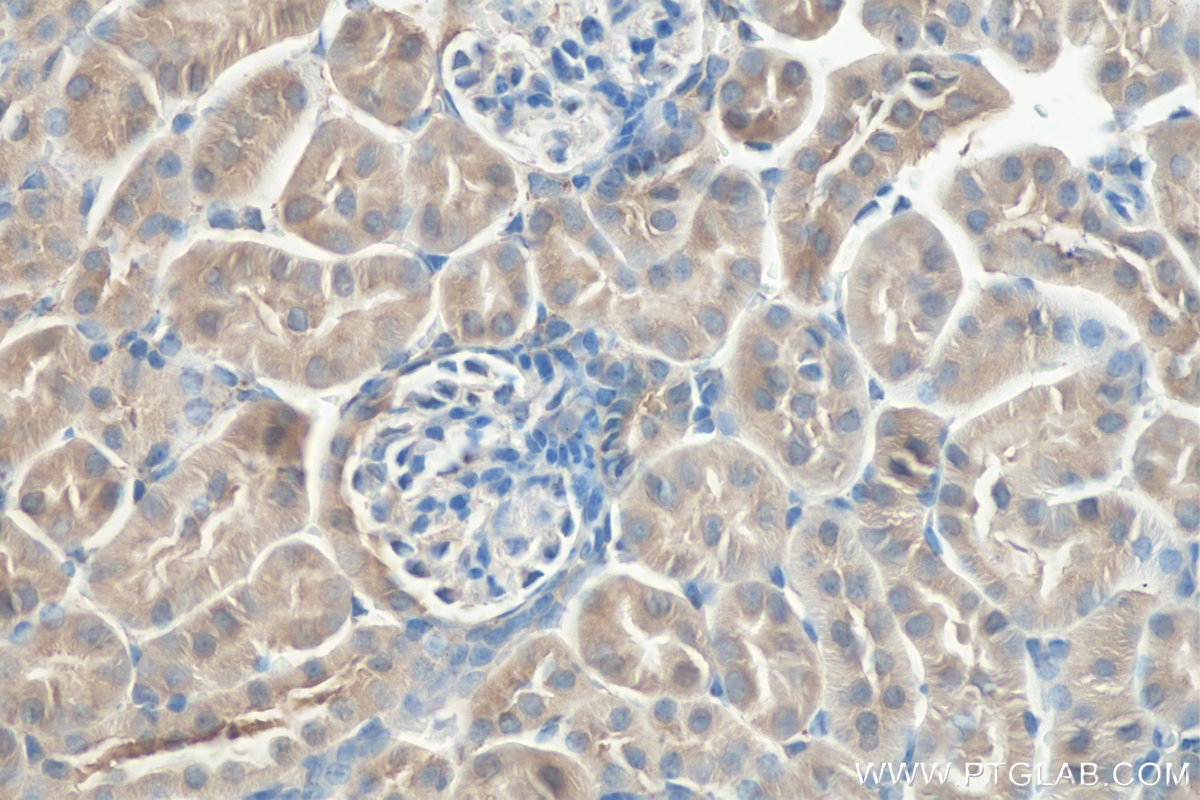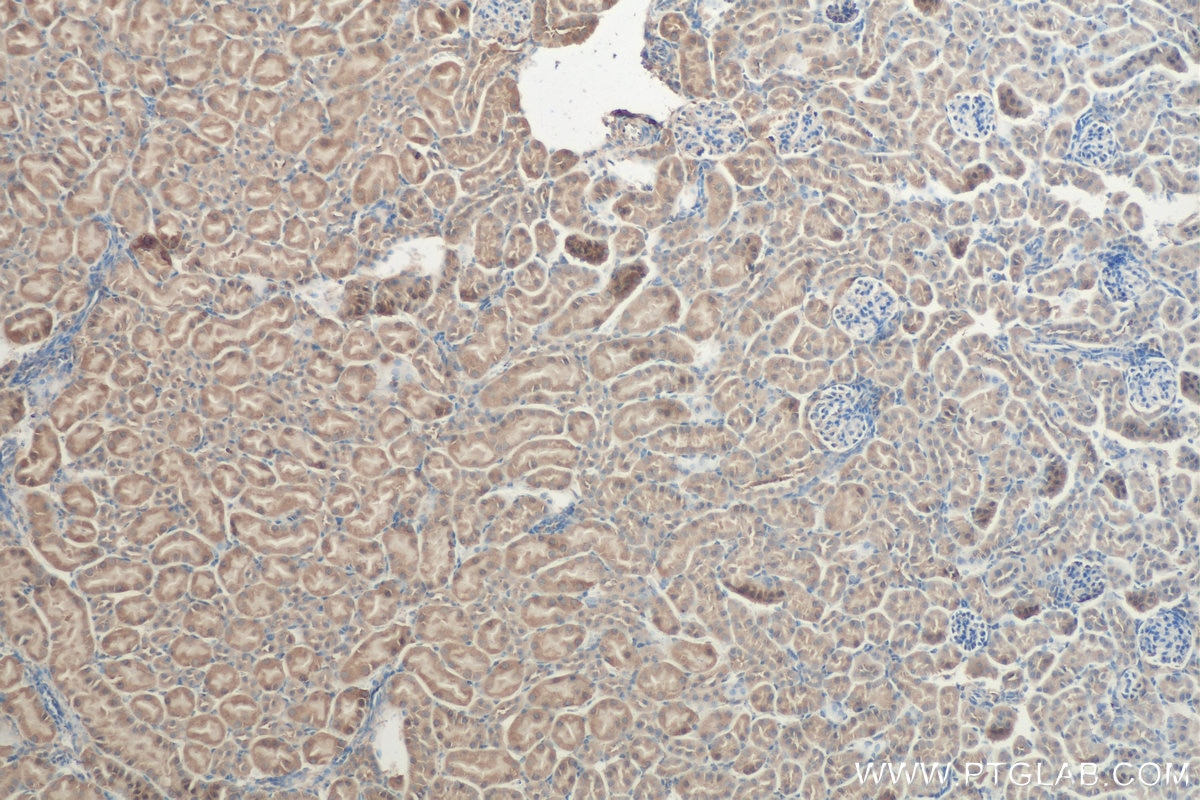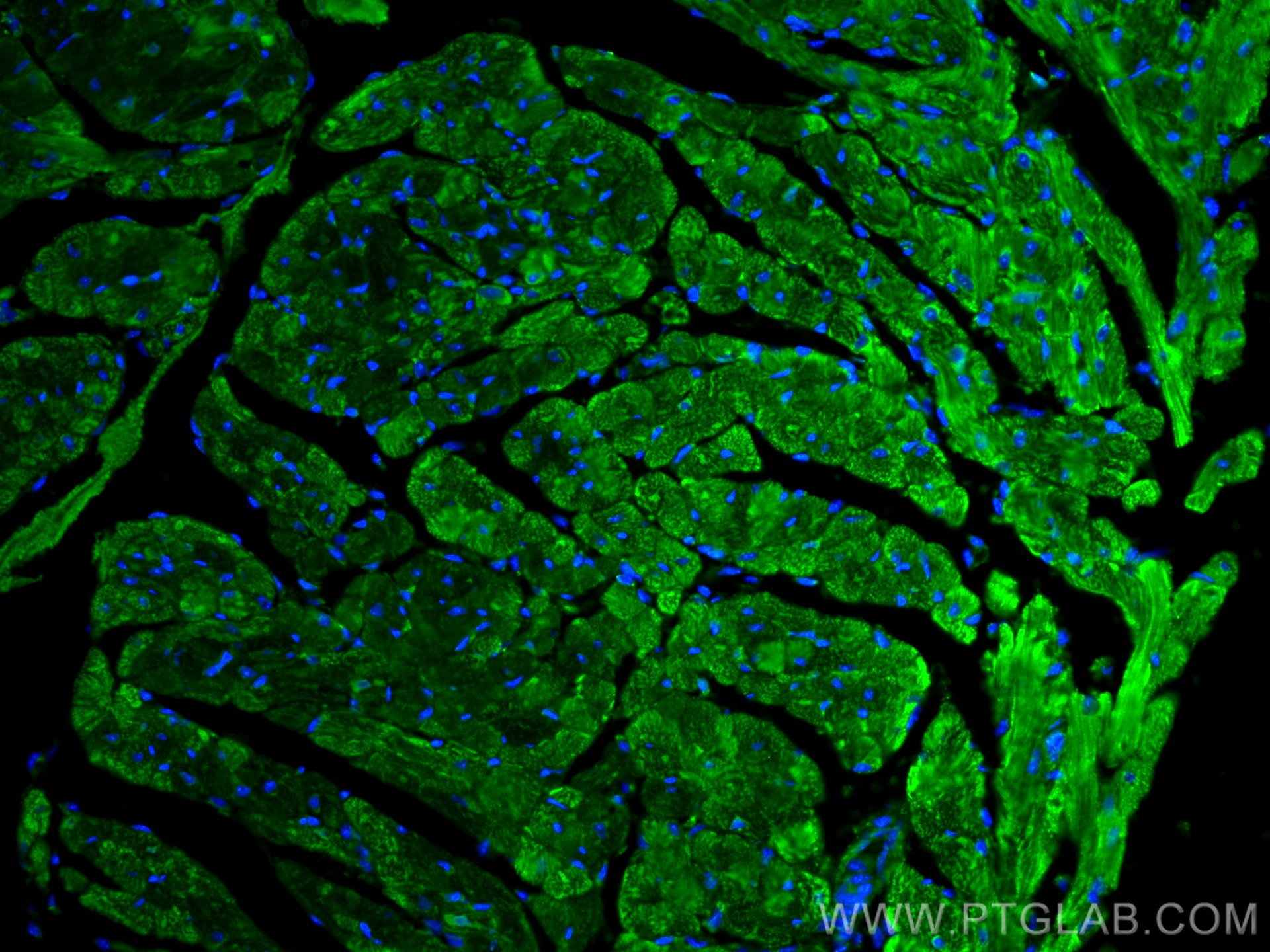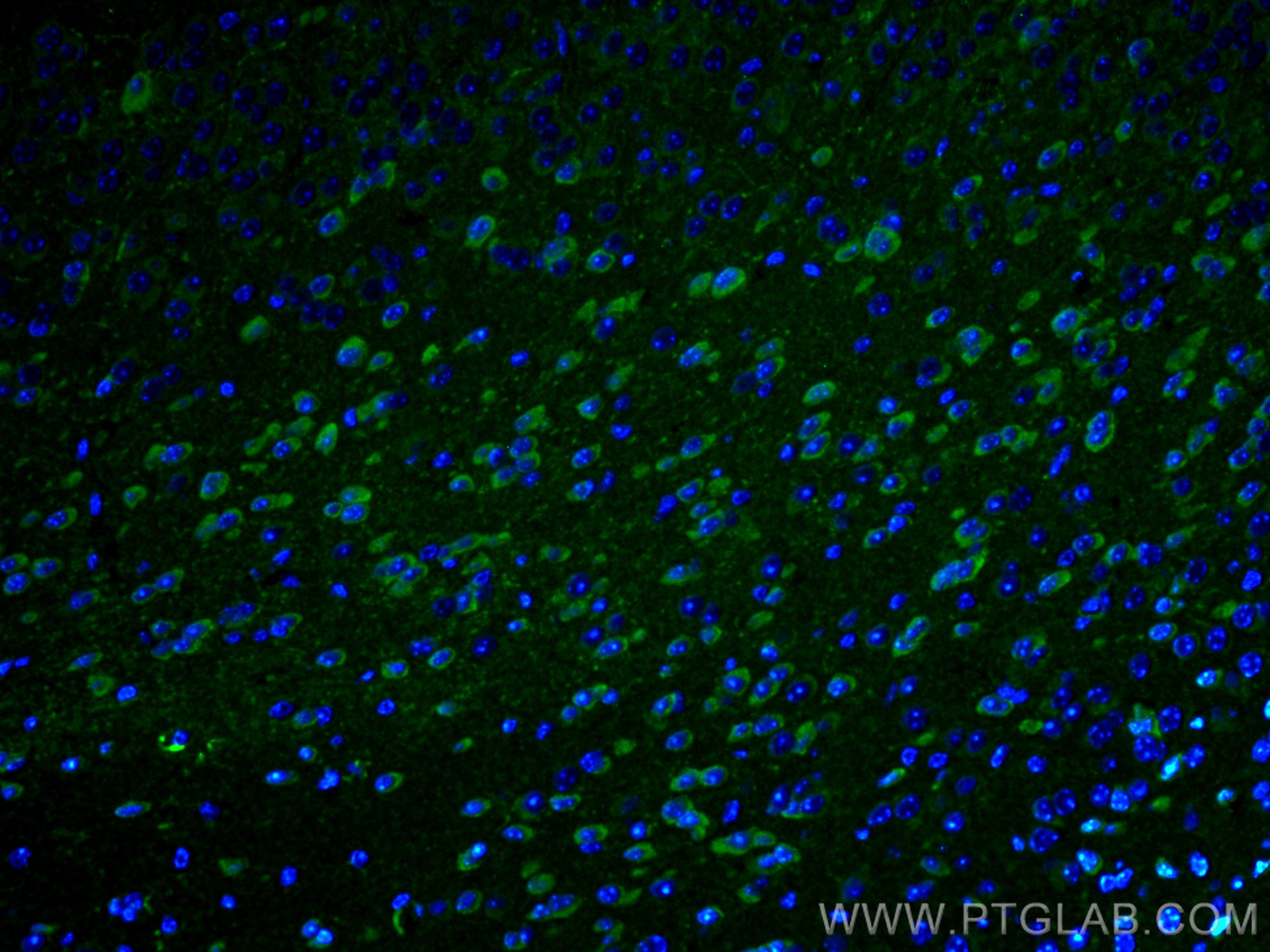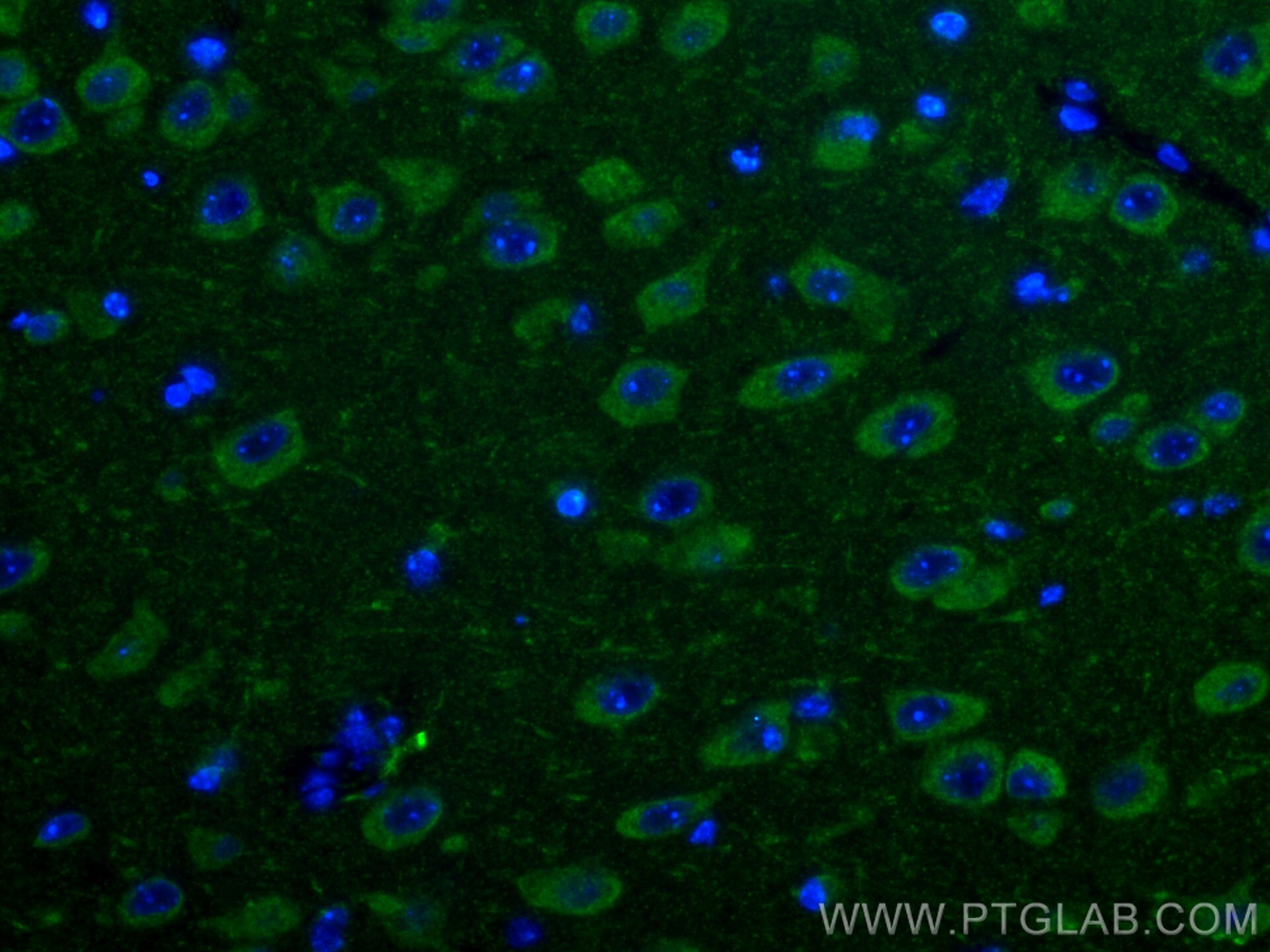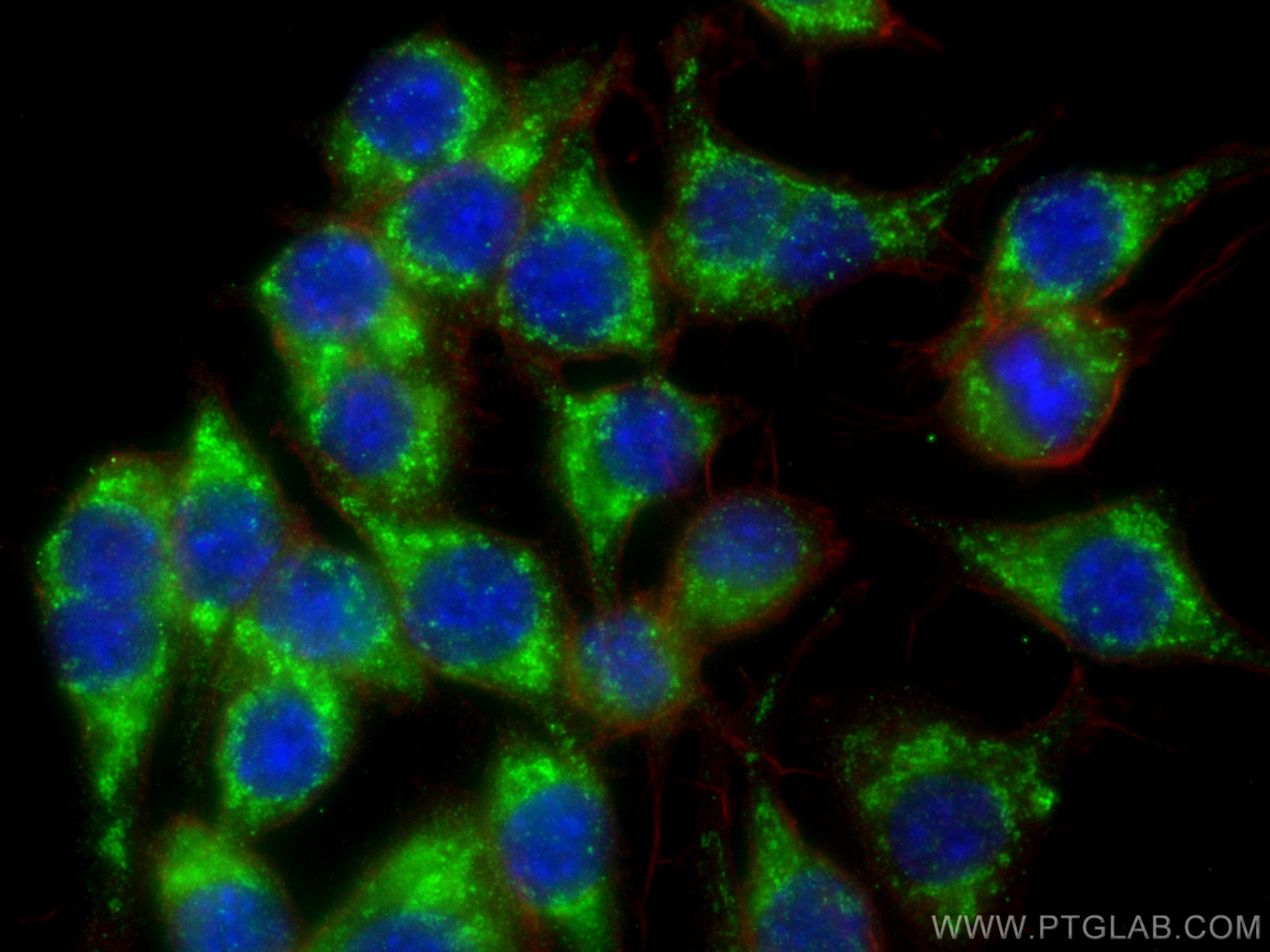Tested Applications
| Positive WB detected in | mouse brain tissue, C6 cells, HEK-293 cells, mouse liver tissue, PC-12 cells, rat brain tissue, pig brain tissue |
| Positive IHC detected in | mouse kidney tissue Note: suggested antigen retrieval with TE buffer pH 9.0; (*) Alternatively, antigen retrieval may be performed with citrate buffer pH 6.0 |
| Positive IF-P detected in | mouse heart tissue, mouse brain tissue |
| Positive IF/ICC detected in | RAW 264.7 cells |
Recommended dilution
| Application | Dilution |
|---|---|
| Western Blot (WB) | WB : 1:1000-1:8000 |
| Immunohistochemistry (IHC) | IHC : 1:50-1:500 |
| Immunofluorescence (IF)-P | IF-P : 1:50-1:500 |
| Immunofluorescence (IF)/ICC | IF/ICC : 1:200-1:800 |
| It is recommended that this reagent should be titrated in each testing system to obtain optimal results. | |
| Sample-dependent, Check data in validation data gallery. | |
Published Applications
| KD/KO | See 13 publications below |
| WB | See 364 publications below |
| IHC | See 43 publications below |
| IF | See 87 publications below |
| IP | See 5 publications below |
| CoIP | See 7 publications below |
Product Information
14060-1-AP targets PARK2/Parkin in WB, IHC, IF/ICC, IF-P, IP, CoIP, ELISA applications and shows reactivity with human, mouse, rat, pig samples.
| Tested Reactivity | human, mouse, rat, pig |
| Cited Reactivity | human, mouse, rat, pig, rabbit, monkey, chicken, bovine, cattle, ducks |
| Host / Isotype | Rabbit / IgG |
| Class | Polyclonal |
| Type | Antibody |
| Immunogen |
CatNo: Ag5092 Product name: Recombinant human Parkin protein Source: e coli.-derived, PGEX-4T Tag: GST Domain: 81-387 aa of BC022014 Sequence: NATGGDDPRNAAGGCEREPQSLTRVDLSSSVLPGDSVGLAVILHTDSRKDSPPAGSPAGRSIYNSFYVYCKGPCQRVQPGKLRVQCSTCRQATLTLTQGPSCWDDVLIPNRMSGECQSPHCPGTSAEFFFKCGAHPTSDKETSVALHLIATNSRNITCITCTDVRSPVLVFQCNSRHVICLDCFHLYCVTRLNDRQFVHDPQLGYSLPCVGTGDTVVLRGALGGFRRGVAGCPNSLIKELHHFRILGEEQYNRYQQYGAEECVLQMGGVLCPRPGCGAGLLPEPDQRKVTCEGGNGLGCGYGQRRTK Predict reactive species |
| Full Name | Parkinson disease (autosomal recessive, juvenile) 2, parkin |
| Calculated Molecular Weight | 52 kDa |
| Observed Molecular Weight | 42-52 kDa |
| GenBank Accession Number | BC022014 |
| Gene Symbol | Parkin |
| Gene ID (NCBI) | 5071 |
| RRID | AB_2878005 |
| Conjugate | Unconjugated |
| Form | Liquid |
| Purification Method | Antigen affinity purification |
| UNIPROT ID | O60260 |
| Storage Buffer | PBS with 0.02% sodium azide and 50% glycerol, pH 7.3. |
| Storage Conditions | Store at -20°C. Stable for one year after shipment. Aliquoting is unnecessary for -20oC storage. 20ul sizes contain 0.1% BSA. |
Background Information
Parkin, a RING-type E3 ubiquitin-protein ligase, is involved in the ubiquitination pathway and contributes to protection from neurotoxicity induced by unfolded protein stresses. Its ubiquitin-protein ligase activity promotes the degradation of a variety of proteins including itself. Mutations in Parkin are implicated in the pathogenesis of autosomal recessive familial Parkinson's disease. It has 8 isoforms produced by alternative splicing with molecular weights of 24, 31, 36 and 42-52 kDa. Sometimes an additional band of 70 kDa or 110 kDa may be detected, which is caused by ubiquitination modification or formation of Parkin complex (PMID: 10976934, PMID: 18190519).
Protocols
| Product Specific Protocols | |
|---|---|
| IF protocol for PARK2/Parkin antibody 14060-1-AP | Download protocol |
| IHC protocol for PARK2/Parkin antibody 14060-1-AP | Download protocol |
| WB protocol for PARK2/Parkin antibody 14060-1-AP | Download protocol |
| Standard Protocols | |
|---|---|
| Click here to view our Standard Protocols |
Publications
| Species | Application | Title |
|---|---|---|
Nat Cell Biol Ammonia-induced lysosomal and mitochondrial damage causes cell death of effector CD8+ T cells | ||
Nat Commun Augmented temperature fluctuation aggravates muscular atrophy through the gut microbiota | ||
Acta Pharm Sin B Histone deacetylase inhibitors inhibit cervical cancer growth through Parkin acetylation-mediated mitophagy. | ||
Acta Pharm Sin B Engineering cannabidiol synergistic carbon monoxide nanocomplexes to enhance cancer therapy via excessive autophagy | ||
J Nanobiotechnology Lyophilized apoptotic vesicles restore DNA damage and mitochondria dysfunction to ameliorate radiation enteritis |
Reviews
The reviews below have been submitted by verified Proteintech customers who received an incentive for providing their feedback.
FH MALLIKARJUNA (Verified Customer) (10-17-2025) | GREAT FOR wb
|
FH Javier (Verified Customer) (09-09-2025) | Perfect antibody for western blotting assay.
|
FH QX (Verified Customer) (05-08-2025) | It is okay to detect endogenous PARK2 with the right around 52 kd MW although there are some nonspecific bands,
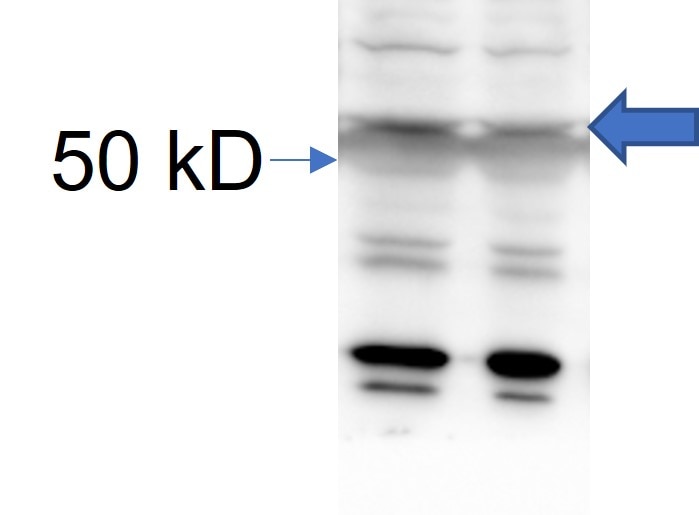 |
FH Ajte (Verified Customer) (03-08-2022) | It works well for me
|
FH Elyssa (Verified Customer) (11-11-2019) | This antibody worked well for me for one cell line (I had tried detecting the protein in 3 cells lines, and only one cell line appeared to have expression. However, I have not looked into this further and cannot say if this has to do with the antibody, or differential expression across lines). Overall, I was happy with the antibody.
|

